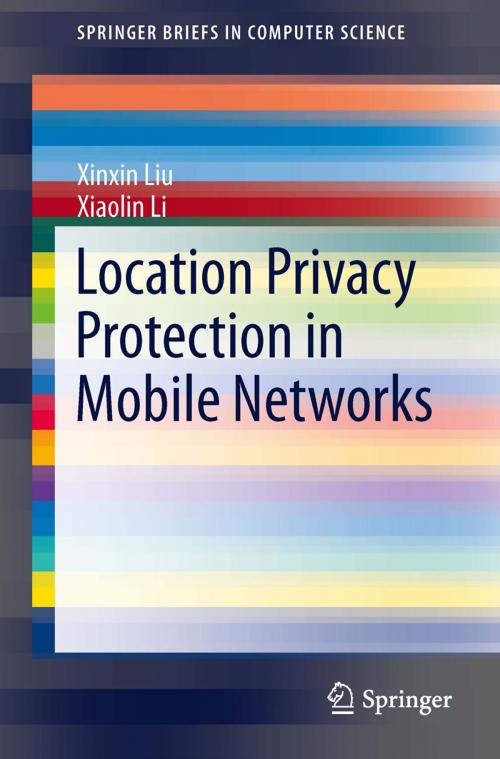Location Privacy Protection in Mobile Networks
Nonfiction, Computers, Networking & Communications, Computer Security, Operating Systems, Application Software| Author: | Xinxin Liu, Xiaolin Li | ISBN: | 9781461490746 |
| Publisher: | Springer New York | Publication: | October 17, 2013 |
| Imprint: | Springer | Language: | English |
| Author: | Xinxin Liu, Xiaolin Li |
| ISBN: | 9781461490746 |
| Publisher: | Springer New York |
| Publication: | October 17, 2013 |
| Imprint: | Springer |
| Language: | English |
This SpringerBrief analyzes the potential privacy threats in wireless and mobile network environments, and reviews some existing works. It proposes multiple privacy preserving techniques against several types of privacy threats that are targeting users in a mobile network environment. Depending on the network architecture, different approaches can be adopted. The first proposed approach considers a three-party system architecture where there is a trusted central authority that can be used to protect users’ privacy. The second approach considers a totally distributed environment where users perform privacy protection by themselves. Finally, more general system architecture is discussed including how a semi-trusted server may exist, but users need to collaborate to achieve maximized privacy protection. This brief is designed for researchers and professionals working with privacy preservation, mobile networks, and threat models. The variety of approaches presented makes it useful for students as well.
This SpringerBrief analyzes the potential privacy threats in wireless and mobile network environments, and reviews some existing works. It proposes multiple privacy preserving techniques against several types of privacy threats that are targeting users in a mobile network environment. Depending on the network architecture, different approaches can be adopted. The first proposed approach considers a three-party system architecture where there is a trusted central authority that can be used to protect users’ privacy. The second approach considers a totally distributed environment where users perform privacy protection by themselves. Finally, more general system architecture is discussed including how a semi-trusted server may exist, but users need to collaborate to achieve maximized privacy protection. This brief is designed for researchers and professionals working with privacy preservation, mobile networks, and threat models. The variety of approaches presented makes it useful for students as well.















